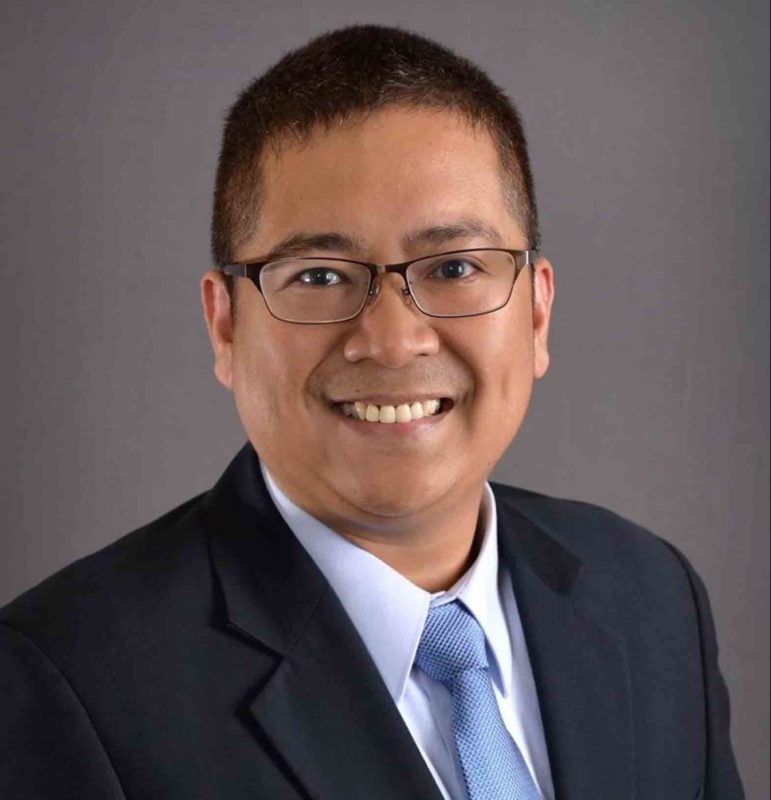Recent immigrant named Saskatchewan crown prosecutor

Ronald Solomon Jalmanzar was appointed as crown prosecutor of Saskatchewan by the Criminal Justice Branch of the Ministry of Attorney General. PCN
A former city prosecutor in Quezon City, Philippines was recently appointed as a crown prosecutor in Saskatchewan, Canada, likely the first such designation of a Filipino immigrant in the province.
Ronald Solomon Jalmanzar was an associate of the Olive Waller Zinkhan & Waller LLP, a law firm in Regina, when he learned of a vacant position for crown prosecutor and applied for the job.
A crown prosecutor is appointed and assigned to cases by the Criminal Justice Branch of the Ministry of Attorney General. The Public Prosecution Service of Canada (the federal Crown) prosecutes cases involving federal offences, such as drug violations.
“Throughout the process, I was just focusing on my goal of lawyering as my contribution to society. My vision was to provide excellent legal service to the community,” Jalmanzar said of his journey in an Omni News report.
Describing the process as like going through the eye of a needle, Jalmanzar said there were a lot of times when he just wanted to give up.
A father of two boys, Jalmanzar said he and his wife decided to immigrate to Canada in 2018 to give their sons a better future.

Ronald Jalmanzar and his family migrated to Canada in 2018 with the dream of giving his children a better future. PCN
Despite the fear and the advice of many not to leave the Philippines where they already had stable jobs, Jalmanzar said they pursued their plan.
“Initially, ayaw kong mag-migrate. Natatakot ako, eh. Natatakot ako kung anong mangyari at naiintindihan ko na masyado siyang malaking risk. Lalo pa ako at ang asawa ko ay established na sa aming mga careers,” he added in the same interview. (Initially, I didn’t want to migrate. I was afraid. I was afraid of what was going to happen and I understood that it was such a big risk especially that my wife and I already had established careers in the Philippines.)
Set on his goals to practice law in Canada, Jalmanzar said even before they filed their application to immigrate, he already sent inquiries to the Law Society of Canada for the accreditation process for an internationally trained lawyer.
When they sent him links and a list of the requirements, he saw that he needed to take about nine exams and pass them in five years and be knowledgeable of Canadian laws.
To save on costs, he self-studied and in five months passed the Saskatchewan Canadian Centre for Professional Legal Education (CPLED) Bar Admissions Program and articling period, becoming a member of the Law Society of Saskatchewan.
Before that, he obtained a Certificate of Qualification from the National Committee on Accreditation of the Federation of Law Societies of Canada, according to a post from the Facebook page of the Philippine Association of Saskatchewan, which congratulated him for the achievement and said that he is “probably the first Filipino member of the Law Society of Saskatchewan.”/>
He also revealed the challenges he faced in landing a job.
After sending out around 50 application packages, he only got five responses—three of which said they had no vacancy and two others gave him interviews but did not hire him.
He then decided to volunteer in a company to acquire some Canadian experience, until he got a job in law firm.
He admitted that his friends had warned him that a lot of Filipino lawyers who immigrated here no longer practiced their profession.
“Lagi lang tayong grateful. Wag tayong ma-discourage sa seemingly insurmountable challenges along the way. Hold on sa dreams natin. Pursue them relentlessly. Ask questions. Seek advice. Sa mga lawyers na gusto din mag transition, gusto rin pumunta dito, it’s not a question of ‘if’ but ‘when.’ Pray. Study. Work. Mahirap yung transition from Philippine practice into Canadian practice pero it can be done,” he said as a message to those aspiring to also work as lawyers in Canada.
(We just have to be always grateful. Don’t be discouraged with you face insurmountable challenges along the way. Hold on to your dreams. Pursue them relentlessly. Ask questions. Seek advice. To all those who want to migrate and transition into becoming lawyers here, it’s not a question of ‘if’ but ‘when.’ Pray. Study. Work. The transition from Philippine practice into Canadian practice is hard but it can be done.)

